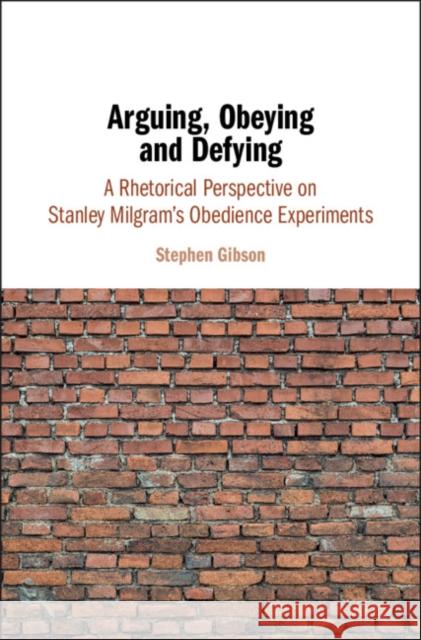Arguing, Obeying and Defying: A Rhetorical Perspective on Stanley Milgram's Obedience Experiments » książka
topmenu
Arguing, Obeying and Defying: A Rhetorical Perspective on Stanley Milgram's Obedience Experiments
ISBN-13: 9781108421331 / Angielski / Twarda / 2019 / 240 str.
Arguing, Obeying and Defying: A Rhetorical Perspective on Stanley Milgram's Obedience Experiments
ISBN-13: 9781108421331 / Angielski / Twarda / 2019 / 240 str.
cena 483,95
(netto: 460,90 VAT: 5%)
Najniższa cena z 30 dni: 345,14
(netto: 460,90 VAT: 5%)
Najniższa cena z 30 dni: 345,14
Termin realizacji zamówienia:
ok. 16-18 dni roboczych.
ok. 16-18 dni roboczych.
Darmowa dostawa!
Presents an extensive qualitative analysis of the transcripts of Stanley Milgram's (in)famous obedience experiments.











